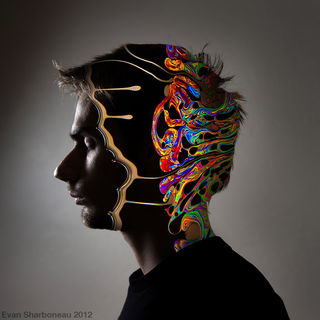
Psychiatry
Why Psychiatry Should Discard the Idea of Free Will
Psychiatry is a medicine of the mind, yet our common ideas of the mind are wrong
Posted March 30, 2016 Reviewed by Matt Huston

The illusion of free will was born in the felt experience of individuals, raised on the bosom of faulty philosophy, but has since starved from lack of scientific nourishment. Those who claim we possess libertarian free will—that we are consciously free to author our thoughts and actions—are invoking a metaphysical doctrine that a miracle takes place every time someone makes a decision. There is no way for us to reconcile what we know about the world scientifically with the claim that we were free to act differently than we did in the past. As neuroscientist Sam Harris has pointed out, “We are not self-caused little gods.”
I recently wrote an article arguing how the illusion of free will provides a basis for blame and shame in mental illness. If the mind is truly free, it is understandable why one would think illness of the mind must also be free; free to change if one chose to do so; free to be prevented from occurring in the first place.
But the idea of free will may also be affecting how many doctors conceptualize psychiatric illness—illuminated by the terminology we tend to use. Consider the commonly used medical expressions “organic depression,” “rule out organic causes,” and “non-organic psychosis.” What do these terms mean? Organic is defined as “relating to or derived from living matter” and, when used in relation to an illness, implies there is a physical cause. In turn, the term non-organic suggests there is no physical cause; an illness not related to living matter. This strange terminology is unique to psychiatry when compared to other fields of medicine.
To see the vast difference in attitude we can look at how we categorise hypertension (high blood pressure). Like mood and psychotic disorders, most cases of hypertension have no known cause, only known risk factors. However, rather than organic and non-organic, we define high blood pressure as “primary” or “secondary”—primary where a cause is not known, and secondary where a cause is known (e.g., renal artery disease). Notice the vocabulary never suggests some cases have no physical cause—they are simply primary. Jargon used in other areas of medicine includes “idiopathic” (private/peculiar disease) and “cryptogenic” (concealed/hidden production). Unfortunately, in psychiatry we refer to organic and non-organic, biological and non-biological; some cases have causes, others don’t.
Not all psychiatrists share this narrow interpretation of the language. However, I believe this is a superficial indicator of a common and deep-seated misconception of the mind and brain: Mind-body dualism. Dualism is the idea that we consist of physical body ‘stuff’ and immaterial mind ‘stuff’. There is an apparently unbridgeable gap between the first- and third-person perspectives, so the mind must be something else.
Neuroscience has continued to pile on the evidence that our thoughts are entirely dependent on the physical processes of the brain, whilst evidence for ‘something else’ is entirely absent. Despite this, mind-body dualism has endured as the predominant view to this day and the belief in free will is playing a crucial role. Free will would only make sense if we invoke at least some magical aspect of the mind. It would only make sense if we relinquish the mind from the bonds of the physical laws of the universe. It would only make sense if we imagine the mind as somewhat irrespective of the brain.
It is not surprising then that psychiatry, a medicine of the mind, is not seen as ‘real medicine’. Only 4% of medical graduates in the U.S. apply for psychiatry, and in the U.K. psychiatry has the least applicants per vacancy of any specialty, about one applicant per vacancy (compared with over nine per vacancy in surgery). Psychiatry is seen as a practise of the dark arts, accompanied by mind reading, talking to the dead, and fortune telling. It seems psychiatry deals with metaphysics, yet science is not in the game of metaphysics.
If psychiatry is medicine of the mind, but our common beliefs about the mind are wrong, where does that leave the medicine? In my view, free will is forcing a gap in our picture between physical processes and the mind. This gap forms a trash can where we throw all cases of mental illness we don’t yet understand. Does it seem like a trash can? No, because we feel comfortable in thinking “the mind is mysterious, there’s free will involved.” But if we resign ourselves to accept a mind with free will—a mind that is free—we resign ourselves to a psychiatric specialty that does not attempt to fully understand the underpinnings of mental illness.
Discarding the doctrine of free will allows us to acknowledge, in every case, that there are causes for human behaviour. Our job is to find those reasons and treat them, and not to substitute an absence of answers with blame, judgement or indifference until we get there. As long as we refuse to let go of the idea of free will, we allow the mind to escape the grasp of scientific enquiry. This is a self-inflicted handicap that psychiatry cannot afford.

